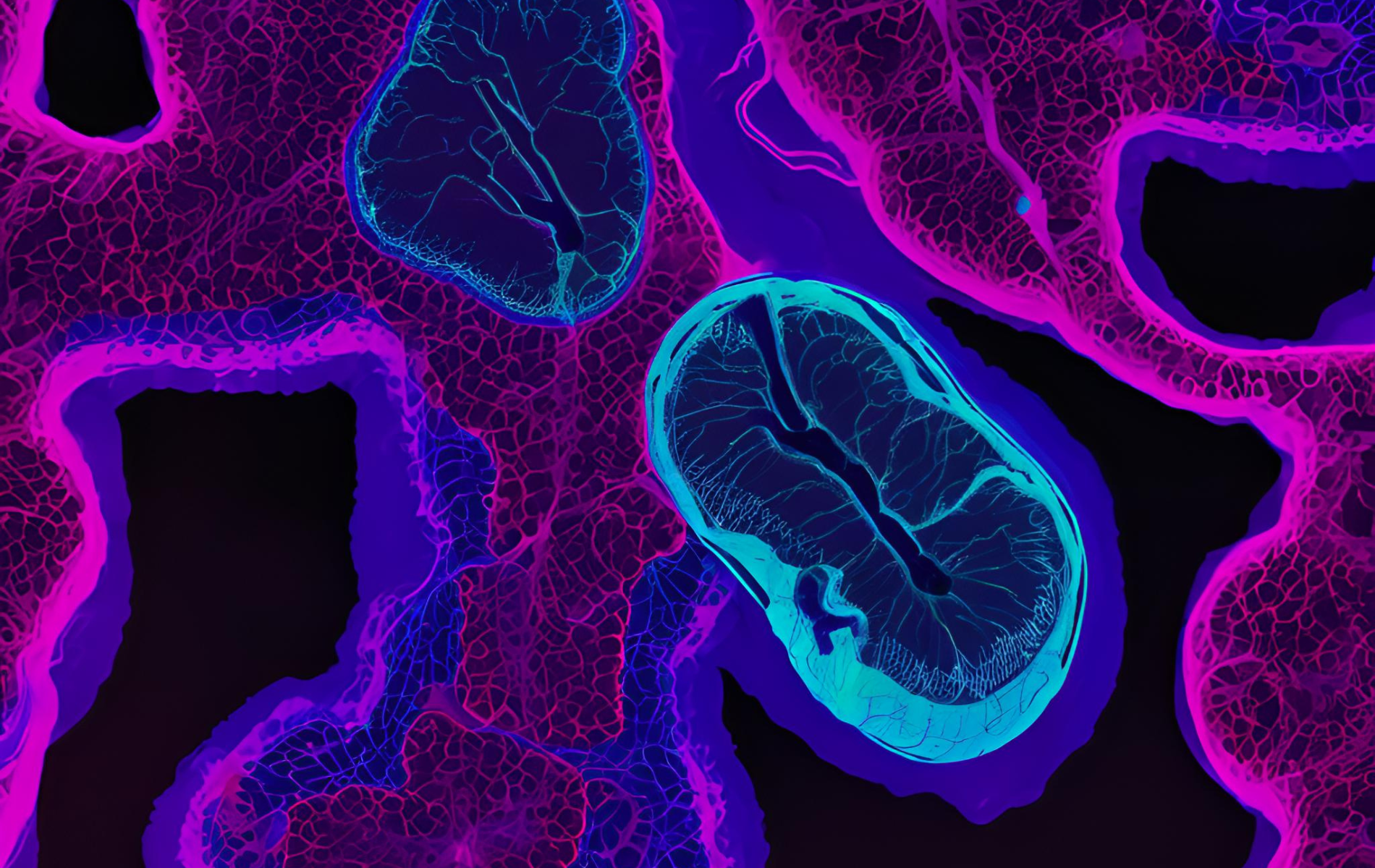
MPS Qualification, Lush Prize 2024 Awardees, CoARA Boost, 3D Cardiac Organoid Platform, First map of human placenta infection pathways and more
News on non-animal methods
MAY 20 - 24, 2024NEWS, REPORTS & POSITION STATEMENTS
1. Ethics demand a paradigm shift in medical research, by Dr Jarrod Bailey (PCRM) & Prof Michael Balls
In their invited review in Anesthesiology Clinics, the authors discuss ethical issues and considerations concerning the use of animals in science, and how these can be used by some to justify animal experimentation. They also make the case that human ethics must take a much more prominent role. If biomedical science is not sufficiently human relevant, then it is letting down billions of people relying on science to increase the understanding of human diseases, and to provide new drugs to ease human suffering — and perpetuating harm to tens of millions of animals in laboratories every year.
Read the article on Anesthesiology Clinics
2. MPS : Where are we on the Qualification debate ?
In a recent post Pelin Candarlioglu Deacon, Chair of Industry Advisory Board at EUROoCS, shared her analysis on the standardisation and qualification of MPS and the two highly key papers published in the last 6 months on this topic.
- The first one is the latest IQ-MPS/Global Regulators paper which reports the findings of the 2020 Workshop : “Considerations from an International Regulatory and Pharmaceutical Industry (IQ MPS Affiliate) Workshop on the Standardization of Complex In Vitro Models in Drug Development”.
- The second paper is from Pamies et al. “Recommendations on fit-for-purpose criteria to establish quality management for microphysiological systems and for monitoring their reproducibility”.
In her analyse, Deacon acknowledged “the significant steps that are made towards disentangling the qualification dilemma and removing road blockers which has been hindering the mass adoption of MPS”, being “hopeful of the initiative that is led by EMA aiming to create a Context of Use-specific guideline for the regulatory use of MPS”.
INTERVIEWS, NOMINATIONS & AWARDS
3. Lush Prize 2024 Awardees
The Lush Prize is the largest prize fund in the non-animal testing sector, with a prize fund of £250,000 to support initiatives to end or replace animal testing. The 2024 award winners were announced at an Awards Ceremony on Tuesday 21st May.
55 projects from around the world have been shortlisted for the Lush Prize 2024 fitting in five main prize categories : Science, Training, Public Awareness, Lobbying, and Young Researcher. The ceremony also recognized three Recognition Awards ; Political Achievement, Major Science Collaboration and the Andrew Tyler Award.
See the 2024 Lush Prize laureates
TOOLS, PLATFORMS, CALLS
4. Leukocyte extraction from blood using sheath-free microfluidic-based platform
Leukocyte count is routinely performed for diagnostic purposes and is rapidly emerging as a significant biomarker for a wide array of diseases. Additionally, leukocytes have demonstrated considerable promise in novel cell-based immunotherapies. However, the direct retrieval of leukocytes from whole blood is a significant challenge due to their low abundance compared to erythrocytes.
In an article published in the journal Lab on a Chip, Chavez-Pineda et al. introduce a new approach that isolates and recovers leukocytes from diluted whole blood in a single step using the deterministic lateral displacement (DLD) microfluidic technique.
5. Phenome-wide identification of therapeutic genetic targets
The ongoing expansion of human genomic datasets propels therapeutic target identification ; however, extracting gene-disease associations from gene annotations remains challenging.
In their article published in Science Advances, Middleton et al. introduce Mantis-ML 2.0, a framework integrating AstraZeneca’s Biological Insights Knowledge Graph and numerous tabular datasets, to assess gene-disease probabilities throughout the phenome, enabling a comprehensive network of known phenotypes, relationships among genes, proteins, diseases, and compounds, assembled across 55 different data sources. In addition, Mantis-ML 2.0 deploys natural language processing (NLP), eliminating the need to manually input the relevant features for a disease or phenotype.
6. CoARA’s First Cascade Funding Call : supporting institutions from across the European Research Area (ERA)
Turning agreement into action, the EU-funded CoARA Boost project is allocating 2.75M EUR for institutions to implement reform of research assessment. This call for Cascade Funding aims to enhance institutional change and target pilot and exchange-of-knowledge initiatives. This first call will fund more than 20 projects facilitating knowledge-exchange, piloting new initiatives within institutions, and enabling lasting institutional change. As such, it encourages and supports research organisations to investigate and test what will efficiently work ‘in real life’.
First call for applications is open until 26 June 2024.
An online information session for parties interested will be held the 3rd of June 2024, 14:00 – 15:00 CEST
INDUSTRY, BIOTECH & PARTNERSHIPS
7. Nabla Bio : A $26M Series A Financing with AstraZeneca, Bristol Myers Squibb and Takeda for Generative Protein Design
Nabla Bio, pioneers in generative protein design, announced the close of a $26 million Series A financing, led by Radical Ventures with participation from investors and strategic collaborations with AstraZeneca, Bristol Myers Squibb Company and Takeda, worth more than $550 million in upfront and milestone payments, plus royalties.
Nabla develops integrated AI and wet-lab technologies that enable atomically precise drug design and high-throughput measurement of drug function, with an initial focus on antibodies targeting multipass membrane proteins, including for example, G protein-coupled receptors (GPCRs), ion channels, and transporters.
“We are unlocking new opportunities to build highly selective drugs against validated, but hard-to-drug targets with a degree of structural precision not previously possible” said Nabla Co-Founder and CEO Surge Biswas.
8. InSphero Partnership with Genome Biologics for 3D Cardiac Organoid Platform
In a significant expansion of its industry-leading portfolio, InSphero was pleased to announce its exclusive commercialization partnership with Genome Biologics, based in Frankfurt, Germany.
This partnership will grant InSphero exclusive global rights to commercialize Genome Biologics’ revolutionary 3D Cardiac Organoid Platform. This platform is at the forefront of cardiac disease research, offering precise, scalable, and disease-specific organoid models that are crucial for the development of novel therapeutics.
SCIENTIFIC DISCOVERIES & PROTOCOLS
9. Human brain organoids accurately reflect a fully-fledged adult human brain
Human brain organoids are emerging as translationally relevant models for the study of human brain health and disease. However, it remains to be shown whether human-specific protein processing is conserved in human brain organoids.
Using an innovative method, Tyler J Wenzel, a University of Saskatchewan (CA) researcher, is building tiny pseudo-organs from blood sample to help diagnose & treat Alzheimer’s disease (AD). With Darrell Mousseaua, researchers determined that ‘Mini-brains” created from the cells of individuals with AD, displayed the AD pathology – just on a smaller scale. This groundbreaking research has already received support from the Alzheimer Society of Canada.
In their article published in Frontiers of Cellular Neuroscience, the authors demonstrate that cell fate and composition of unguided brain organoids are dictated by culture conditions during embryoid body formation, and that culture conditions at this stage can be optimized to result in the presence of glia-associated proteins and neural network activity as early as three-months in vitro.
Read the publication on Frontiers of Cellular Neuroscience
10. Human connectomic approaches to gain insight into normal and disordered human brain function
Detailed knowledge concerning the synaptic circuitry underlying human brain function is lacking. To better understand the structure of the human temporal cortex, Shapson-Coe et al. performed an electron microscopy reconstruction of a cubic millimeter of human temporal cortex. Their findings allowed the authors to identify previously unknown aspects of the human temporal cortex : a previously unrecognized class of directionally oriented neurons in deep layers and very powerful and rare multisynaptic connections between neurons throughout the sample.
This work provides evidence of the feasibility of human connectomic approaches to visualize and ultimately gain insight into the physical underpinnings of normal and disordered human brain function.
11. Placenta Map Reveals Source of Infection-Related Pregnancy Complications
During early-stage development, the fetus relies heavily on the placental barrier for protection. The mechanisms infections use to cross the placenta are poorly understood due to limitations in the laboratory models traditionally used to study infection pathways in the human placenta. Focusing on the pathways involved in malaria, toxoplasmosis and listeria infection and using “mini placentas” from human samples, researchers have created the first map of human placenta infection pathways.
“While the consequences of these infections during pregnancy are widely known, the mechanisms and pathways involved are much less understood, and we wanted to address this gap in knowledge in our research,” Dr. Roser Vento-Tormo, co-senior author from the Wellcome Sanger Institute told Technology Networks. “We hope that our research can be used by the scientific community worldwide to help develop new ways to understand and treat pregnancy complications that impact millions of lives every year.”
The results were published in the journal Cell Systems and form part of the wider Human Cell Atlas consortium, which aims to map every cell type in the human body to transform our understanding of health and disease.
Read the results on Cell System


